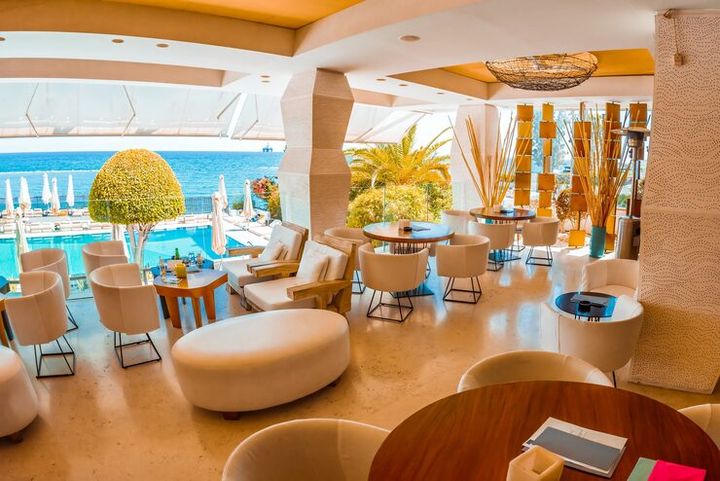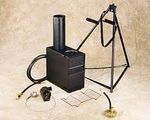
Explore the Details of a Perfect Hotel Stay
A hotel is more than just a place to sleep; it is a commercial establishment that provides temporary lodging, along with a range of services and amenities, for travelers. The concept of a hotel as a business has evolved significantly over centuries, from simple inns on trade routes to today's complex, technologically advanced hospitality hubs. Today, the hotel industry offers a vast spectrum of options, from minimalist hostels to opulent five-star resorts, each designed to meet a specific traveler's needs and budget.
Why This Guide Matters Today

In an era of instant information and global travel, making an informed choice about your accommodation is more important than ever. The right hotel can elevate a trip, while the wrong one can cause significant stress. This guide matters because it addresses key challenges and provides solutions that benefit everyone from the individual traveler to the broader economy.
Who It Affects
Travelers: From solo adventurers to families and business professionals, everyone relies on hotels for a place to rest and recharge. The right choice affects their safety, comfort, and the overall success of their journey.
The Hospitality Industry: A well-informed public supports the entire ecosystem, from hotel owners and managers to employees in housekeeping, food service, and guest relations.
Local Economies: The hotel sector is a significant driver of tourism, job creation, and economic growth. When travelers are confident in their choices, they are more likely to spend on local businesses and experiences.
Problems It Solves
Informed Decision-Making: With countless options, it is easy to become overwhelmed. This guide helps travelers understand what different star ratings mean, the pros and cons of various hotel types, and how to interpret online reviews, leading to better booking decisions.
Ensuring Safety and Security: It highlights what to look for in a hotel's security measures and what precautions to take, solving the problem of a traveler feeling vulnerable in an unfamiliar place.
Enhancing the Experience: By outlining amenities, services, and best practices, it helps travelers find a hotel that not only meets their basic needs but also enhances their trip with features like wellness facilities, sustainable practices, or curated local experiences.
Preventing Financial Surprises: A guide can help travelers understand pricing, taxes, and hidden fees, ensuring they do not encounter unexpected costs and can stick to their budget.
Recent Updates and Trends in the Hotel Industry
The hospitality sector is a dynamic field that is constantly adapting to new technologies, changing consumer behavior, and evolving global priorities. Here are some of the key trends that have emerged over the past year.
Technology-Driven Guest Personalization: Hotels are leveraging artificial intelligence (AI) and data analytics to create hyper-personalized experiences. This goes beyond simple preferences to include tailored recommendations for dining or local activities, automated room settings (lighting, temperature), and personalized check-in processes. Many travelers are now using mobile apps to check in, receive a digital key on their phone, and even control in-room features. This use of contactless technology is becoming a standard expectation for modern travelers.
Sustainability and Eco-Friendly Initiatives: There is a significant shift towards more sustainable practices across the industry. Travelers, especially in India, are increasingly making conscious choices to support businesses that prioritize the environment. Hotels are responding by implementing measures such as:
Reduced Waste: Switching from single-use plastic toiletries to refillable dispensers and implementing robust recycling and composting programs.
Water and Energy Conservation: Installing water-saving faucets and toilets, using LED lighting, and adopting smart energy management systems to reduce their carbon footprint.
Local Sourcing: Sourcing food and amenities from local suppliers to support the community and reduce transportation emissions.
The Rise of "Bleisure" Travel: The lines between business and leisure travel continue to blur. A growing number of travelers are extending their business trips for personal leisure, a trend known as "bleisure." Hotels are adapting by offering flexible workspaces, high-speed internet, and a blend of amenities that cater to both professional needs and a desire for relaxation, such as on-site spas, fitness centers, and communal areas for networking.
Biometric and Contactless Solutions: The use of biometric technology for seamless and secure guest experiences is on the rise. Some hotels are now trialing facial recognition for express check-in and checkout, allowing guests to bypass the front desk entirely. Mobile apps that act as a room key are also becoming more commonplace, providing guests with greater convenience and a sense of enhanced security.
Laws and Policies in India
The hotel industry in India is subject to various laws and regulations designed to ensure quality, safety, and a transparent guest experience. These policies are overseen by government bodies and have a direct impact on how hotels operate and are classified.
Hotel Classification and HRACC: The Hotel and Restaurant Approval and Classification Committee (HRACC), operating under the Ministry of Tourism, is responsible for a voluntary star-rating system for hotels. This system classifies hotels from One-Star to Five-Star Deluxe and also includes "Heritage" categories. The classification is based on a comprehensive set of criteria, including:
Room Size and Amenities: The minimum size of rooms, quality of fittings, and the presence of amenities like air conditioning, telephones, and televisions.
Services and Facilities: The availability of services such as a 24-hour reception, restaurants, laundry service, and accessibility for guests with disabilities.
Health and Hygiene: Adherence to strict health, hygiene, and fire safety standards.
A hotel's star rating provides a standardized way for travelers to gauge the expected level of service and facilities.
Goods and Services Tax (GST): The GST is a major tax that directly impacts the cost of a hotel stay. The GST rate on a hotel room is determined by the room's tariff per night. As of recent updates, the GST structure for hotels is as follows:
12% GST for rooms priced up to ₹7,500 per night.
18% GST for rooms priced above ₹7,500 per night.
This tax is applied to the final bill, and travelers should be aware of it when comparing prices. The hotel industry, through bodies like the Hotel Association of India (HAI), has advocated for rationalizing these tax slabs to better align with inflation and global standards to make India a more competitive tourism destination.
Health and Safety Regulations: Hotels must comply with state and central government regulations regarding public health and safety. This includes fire safety protocols, food safety standards for on-site restaurants, and measures to ensure a hygienic environment.
Tools and Resources for Travelers
To simplify the process of choosing and booking a hotel, a wide range of tools and resources are available.
Online Travel Agencies (OTAs): Websites and apps like MakeMyTrip, Goibibo, and Booking.com allow users to search, compare, and book hotels. They often provide filters for star ratings, amenities, and price, along with access to special deals and packages.
Hotel Review Websites: Platforms like TripAdvisor and Google Reviews provide invaluable, unbiased feedback from past guests. Travelers can read about the real-world experiences of others, view traveler photos, and get a realistic sense of a hotel's quality and service.
Hotel Loyalty Programs: Most major hotel chains, such as Taj Hotels, ITC Hotels, and Marriott, have loyalty programs. These programs offer exclusive benefits to frequent guests, including discounted rates, free room upgrades, and points that can be redeemed for future stays.
Comparison and Budget Calculators: Many websites have built-in tools that allow you to compare prices across different platforms. Travelers can also use simple budget calculators to factor in the total cost of a stay, including taxes and additional fees.
Frequently Asked Questions
What is the difference between a hotel and a motel?
A hotel is typically a multi-story building located in a city center or a popular tourist area, offering a wide range of services and amenities like restaurants, gyms, and pools. A motel (motor hotel) is usually a low-rise building located near a highway, designed for motorists. It offers fewer services, with rooms often having direct access from the parking lot.
Is it better to book directly with the hotel or through an OTA?
Booking directly with the hotel can sometimes offer better rates, especially for extended stays or if you are part of a loyalty program. It also provides a more direct line of communication with the hotel staff. Booking through an OTA can offer convenience, a wide range of options in one place, and access to unique package deals.
How do hotels handle guest complaints?
A reputable hotel will have a clear process for handling guest complaints. The first step is to inform the front desk or a guest relations manager. Most hotels will attempt to solve the issue promptly by offering a solution like a room change, a discount, or a complimentary service to ensure guest satisfaction.
What is the "star rating" of a hotel?
The star rating is a system used to classify hotels based on a standardized set of criteria, including the quality and range of their facilities, amenities, and services. A higher star rating generally indicates a greater number of services and a higher level of luxury.
Conclusion
A hotel stay is a central part of any journey, whether for business or pleasure. The modern hospitality industry, with its diverse offerings and rapid technological advancements, offers more choices than ever before. By understanding the different types of hotels, the latest trends in the industry, and the key laws and policies that govern them, travelers can move beyond simple booking and make truly informed decisions. A well-chosen hotel is a critical component of a safe and comfortable trip. By leveraging the right tools and resources, you can transform your stay from a simple transaction into an enriching and memorable experience.










